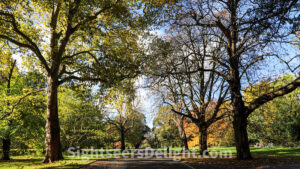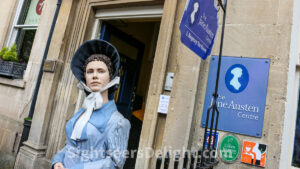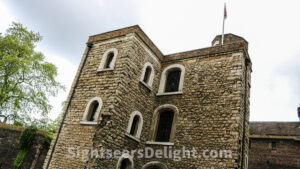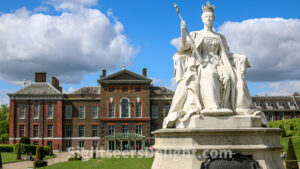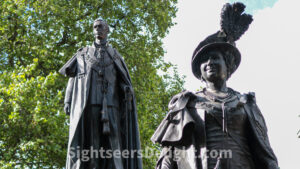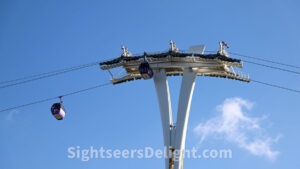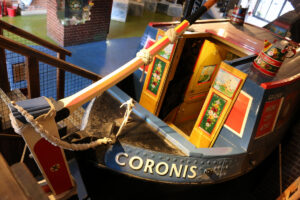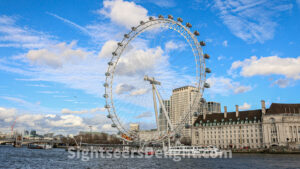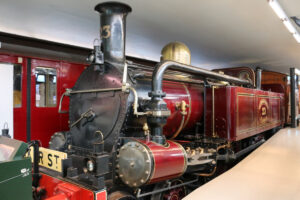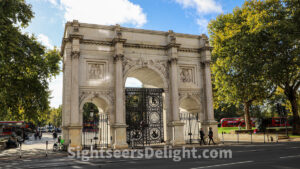Hyde Park is a historic Grade I-listed urban park in Westminster, Greater London, spanning more than 350 acres. This park and green space stretches from Kensington Palace to St James’s Park and, along with Kensington Gardens, Hyde Park, Hyde Park Corner, Green Park, and Buckingham Palace, forms a chain of greenspace. It is divided by the Serpentine and the Long Water lakes. Henry VIII established the park in 1536, taking the land from Westminster Abbey and using it as a hunting ground. It opened publicly in 1637 and quickly became popular, particularly for May Day parades. In the early 18th century, Queen Caroline directed major improvements to the park. During this time, the park was frequently used for duels, particularly by members of the nobility.
Author Jane Austen lived in Bath from 1801 until 1806, and the Jane Austen Centre on Gay Street explores the effect Bath had on Austen’s writings. The museum is certainly a must-see for Austen fans, but it’s also for visitors looking to learn more about historic Bath through the experiences of one of its favorite residents.
The 14th century Jewel Tower was one part of the royal Palace of Westminster. The edifice was built between 1365 and 1366 to house the personal treasure of Edward III.
The Kensington Palace royal residence has been a residence of the British Royal Family since the 17th century. It is the official London residence of the Duke and Duchess of Cambridge and other members of the Royal Family. The State Rooms of Kensington Palace are open to the public and display paintings and objects from the Royal Collection.
Located in central London between The Mall and Carlton Gardens, the King George VI and Queen Elizabeth Memorial is a tribute to King George VI and his spouse, Queen Elizabeth. The memorial was completed in 2009 and features a Grade II listed statue of George VI created by William McMillan and unveiled by his daughter Queen Elizabeth II in 1955. The updated memorial includes a statue of the Queen Mother by Philip Jackson, a relief sculpture by Paul Day and an architectural setting by Donald Buttress and Donald Insall. Queen Elizabeth II unveiled the updated memorial in 2009.
The London cable car is a cable car connection that spans the River Thames in London, England. It is also known as the Dangleway and has been officially named the IFS Cloud Cable Car due to sponsorship reasons. The line was constructed by Doppelmayr at an overall cost of £60 million. The service was launched on June 28, 2012, and is run by Transport for London (TfL). Since October 20, 2022, it has been sponsored by the technology company IFS. Before this, from its commencement, the airline Emirates sponsored the line, and it was referred to as the Emirates Air Line until June 28, 2022. The service comprises a 0.62-mile gondola line across the Thames from the Greenwich Peninsula to the Royal Victoria Dock, located west of ExCeL London. In addition to transporting people across the river, the service is marketed as providing “a unique view of London.”
The London Canal Museum, located in the King’s Cross section of London, tells the often overlooked story of London’s Canals. The museum explores canals from their earliest days as important trade routes to the more leisurely pursuits they are used for today. The museum is housed in a former ice warehouse once used by Carlo Gatti that was built sometime in the mid-19th century to house ice that was imported from Norway by ship and canal barge.
The London Eye, also known as the Millennium Wheel, is a cantilevered observation wheel on the South Bank of the River Thames in London. It stands 443 feet tall with a diameter of 394 feet, making it the tallest cantilevered observation wheel in Europe. With more than three million visitors annually, it is the United Kingdom’s most popular paid tourist attraction and has made numerous appearances in popular culture. It’s worth noting that the London Eye was the tallest Ferris wheel in the world during its debut.
London’s extensive subway system is famous the world over. But, the modern system took decades to develop. This museum, established in 1980 and located in a former flower shop in Covent Garden, showcases the history of transport from horse-drawn carriages to today’s subway system. Its holdings include an impressive collection of vehicles and artifacts used in developing London’s extensive transit system. Among the items on display is Metropolitan Railway steam locomotive No. 23. This engine is one of two surviving steam locomotives from the Metropolitan Railway, the company that built the first passenger-carrying underground railway in the world.
The Marble Arch, a magnificent triumphal arch made of white marble, is located in London, England. John Nash designed it in 1827 as the entrance to Buckingham Palace’s cour d’honneur. The arch was originally located near the palace’s central projection, which contains the famous balcony. However, Decimus Burton, an architect and urban planner once John Nash’s student, relocated the arch to its present location in 1851, near the northeast corner of Hyde Park. This ensured that Buckingham Palace’s expansion could continue without any obstructions. The region surrounding the arch, including the southern portion of Edgware Road and the underground station, is named after it. It’s important to note that the Westminster City Council maintains the arch as it is not part of the Royal Parks.

